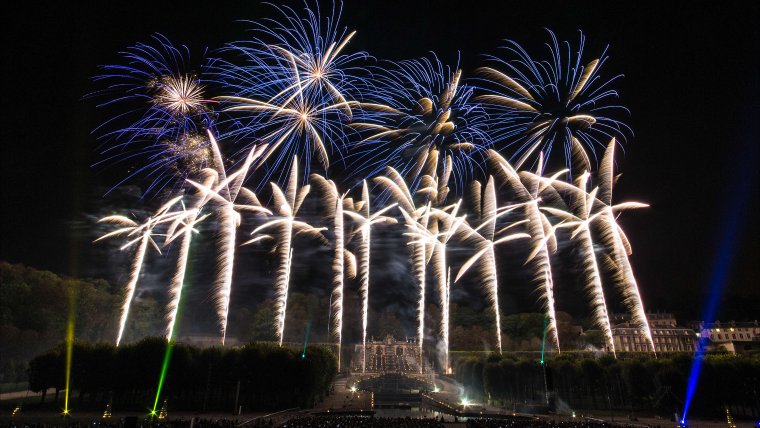
Throughout all history, humans have been fascinated by Fireworks, we all like the feeling of watching this combination of colors and explosions. This is not different for photographers, any photographer at one stage or another, dreams of shooting a great firework celebration, and who wouldn’t, so how to master Fireworks photography? This task for many of you that have not tried it might sound cumbersome and difficult to achieve. But don’t believe this myth with a few tips I will discuss in this article you will be set to go out there and start shooting Fireworks with great results.
This task for many of you that have not tried it might sound cumbersome and difficult to achieve. But don’t believe this myth with a few tips I will discuss in this article you will be set to go out there and start shooting Fireworks with great results.
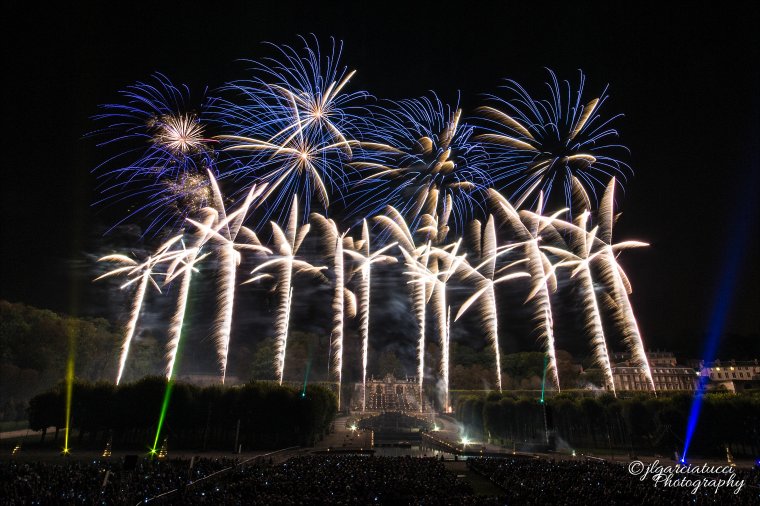 Nikon D3100 ƒ/10 Sigma 10-20mm 1:4-5.6 EX DC HSM t:2s ISO200
Nikon D3100 ƒ/10 Sigma 10-20mm 1:4-5.6 EX DC HSM t:2s ISO200
As many of other photographers when starting trying any technique, we try to think the more and more expensive equipment we get, we will get better results, this is not true. Is possible to get great results with non-high-end equipment.
For shooting fireworks you will need just the basics:
Table of Contents
Let’s start by discussing one by one the basic equipment required to go out there and start shooting.
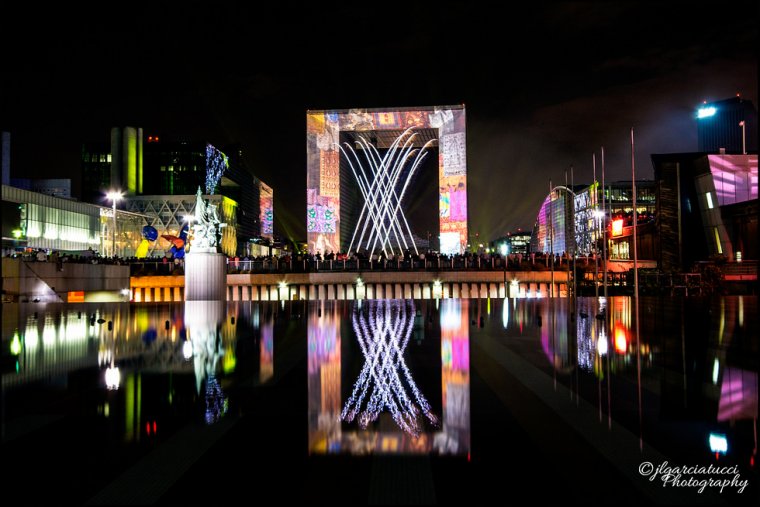 Nikon D3100 ƒ/10 Sigma 10-20mm 1:4-5.6 EX DC HSM t:10s ISO200
Nikon D3100 ƒ/10 Sigma 10-20mm 1:4-5.6 EX DC HSM t:10s ISO200
Most of the cases over 90% of the time I would recommend going wide, use a wide angle lens anything from 14mm~28mm.
Unless you plan to shoot the firework event from a really long distance (like a mountain or hill) to get the city skyline, but this brings other difficulties and this would require better and more expensive equipment.
The main approach of this article is based on the basis of shooting fireworks events from mid to close range distance, so go wide.
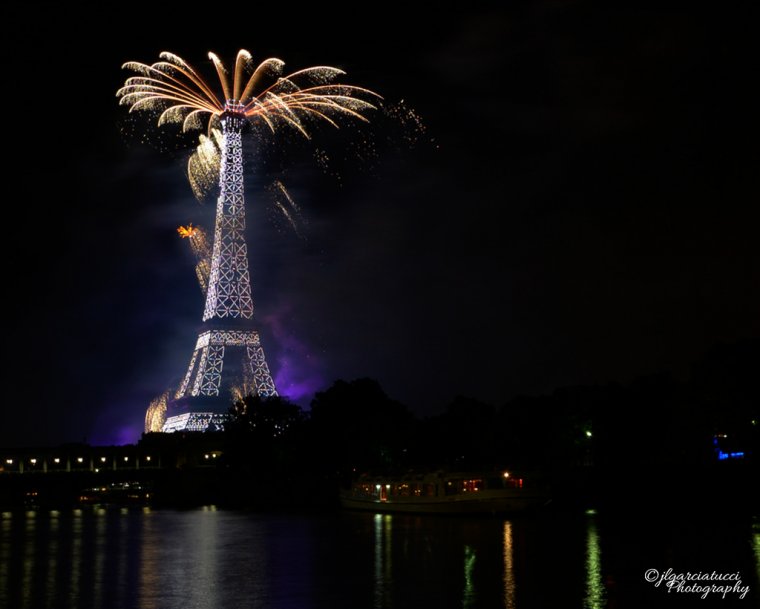 Nikon D3100 ƒ/8 Sigma 10-20mm 1:4-5.6 EX DC HSM t:4s ISO200
Nikon D3100 ƒ/8 Sigma 10-20mm 1:4-5.6 EX DC HSM t:4s ISO200
Believe me, after you are stuck in the crowd looking for a good spot you will need to anticipate how high the fireworks will go over your subject, and you will need a wide angle lens for sure.
There are many wide angle lens that offers great quality for the price and performs great for fireworks photography and also other low light conditions. The first that comes up, if you are on a budget but want to get wide angle lens here are two I have used:
There is no need to have large aperture lenses used for low light photography.
Is wrongly believed that a large aperture lens f/2.8 or less is needed for fireworks photography this is why most of my fireworks photos are shot in the lens sweet spot aperture around f/8~f/11.
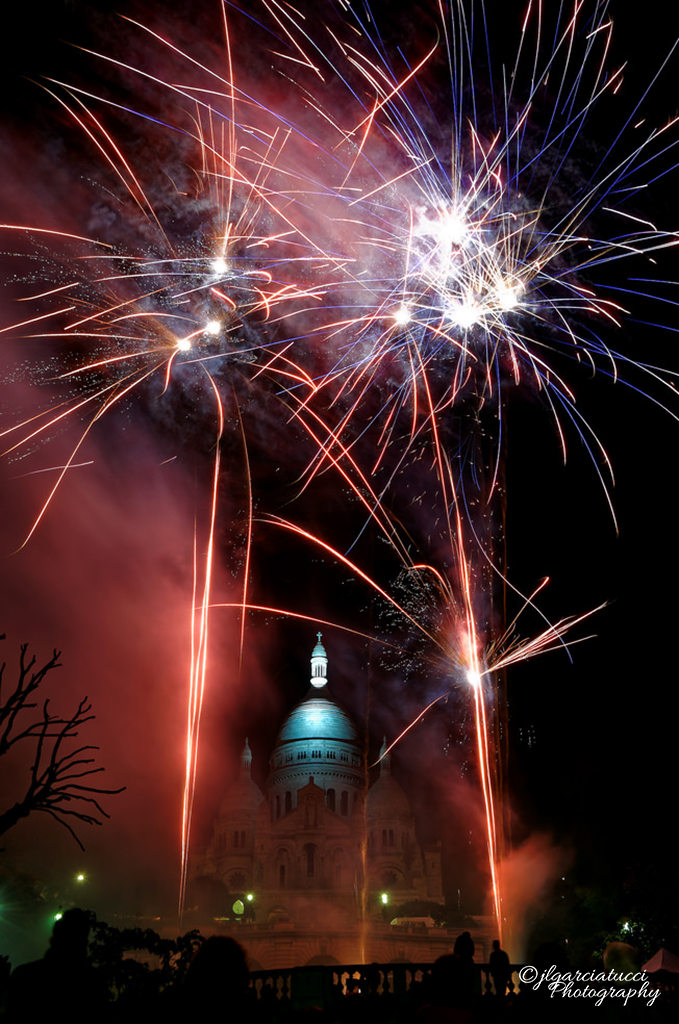
Nikon D610 ƒ/8 Nikkor 28-300mm f/3.5-5.6 ED VR t:4s ISO200
Off course you will need a tripod, but which one? There are many good tripods out there. If you are into long exposure photography, night photography or any other that will need the use of a tripod, I suggest you buy from the beginning (if possible) a good carbon fiber tripod, because these tripods are really light and easy to carry around.
Look for versatility when looking out for a tripod, the different settings that will let you use it in different types of photography. For example, I use a Benro Carbon Fiber tripod that also can be set up as a monopod and different positions.
If you are on a budget any tripod will be good to start shooting fireworks events, remember is most likely that you will be moving around crowds and going light is the best way to go.
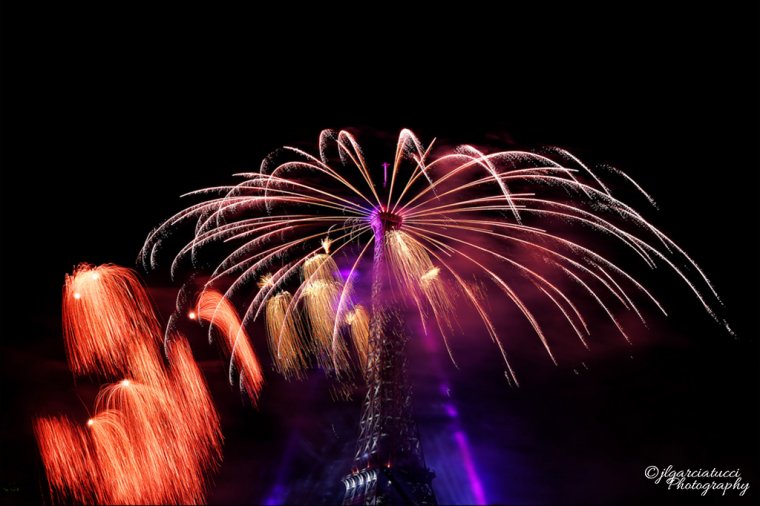 Nikon D610 ƒ/8 Nikkor 28-300mm f/3.5-5.6 ED VR t:10s ISO200 (not so good location due to crowded show)
Nikon D610 ƒ/8 Nikkor 28-300mm f/3.5-5.6 ED VR t:10s ISO200 (not so good location due to crowded show)
For remote shutter release, as many long exposure photographers will tell you to keep in your bag a wired shutter release. And why is this? from experience many of the wireless shutter release I’ve tried they tend to fail at one moment or another. In fireworks shows is critical you get your camera ready to shoot as soon as you want.
So if you like to carry around cordless shutter release is ok, but soon enough you will know the importance of taking your old fashion wired shutter release.
There are many white brands for any camera cheap shutter release you can choose from.
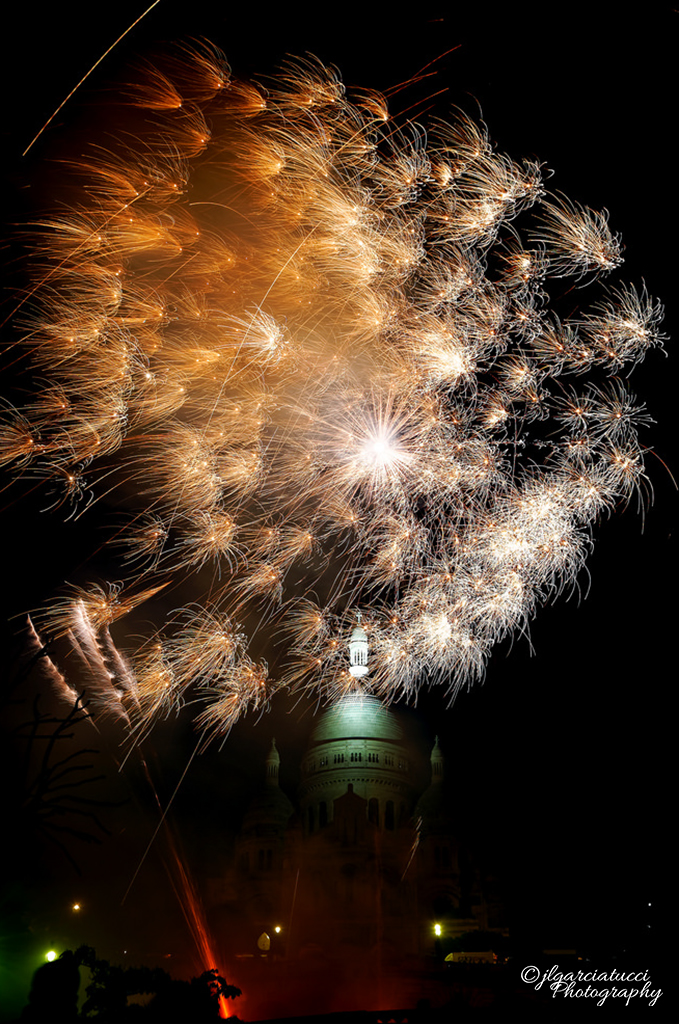
Nikon D610 ƒ/8 Nikkor 28-300mm f/3.5-5.6 ED VR t:4s ISO200 (not so good location due to crowded show)
Contrary to what you might believe, for fireworks, there is not need to have a fast lens (great aperture), you will always try to shoot on the sweet spot of your lens, this is usually f8-f11.
All photographers have their own tricks and you will get yours with practice, here are my favorite settings for shooting fireworks:
You can’t go wrong with these settings. Remember always to get really early to fireworks shows to get a good place and plan your shoot. So get out there and start shooting!.
Comments (0)
There are no comments yet.